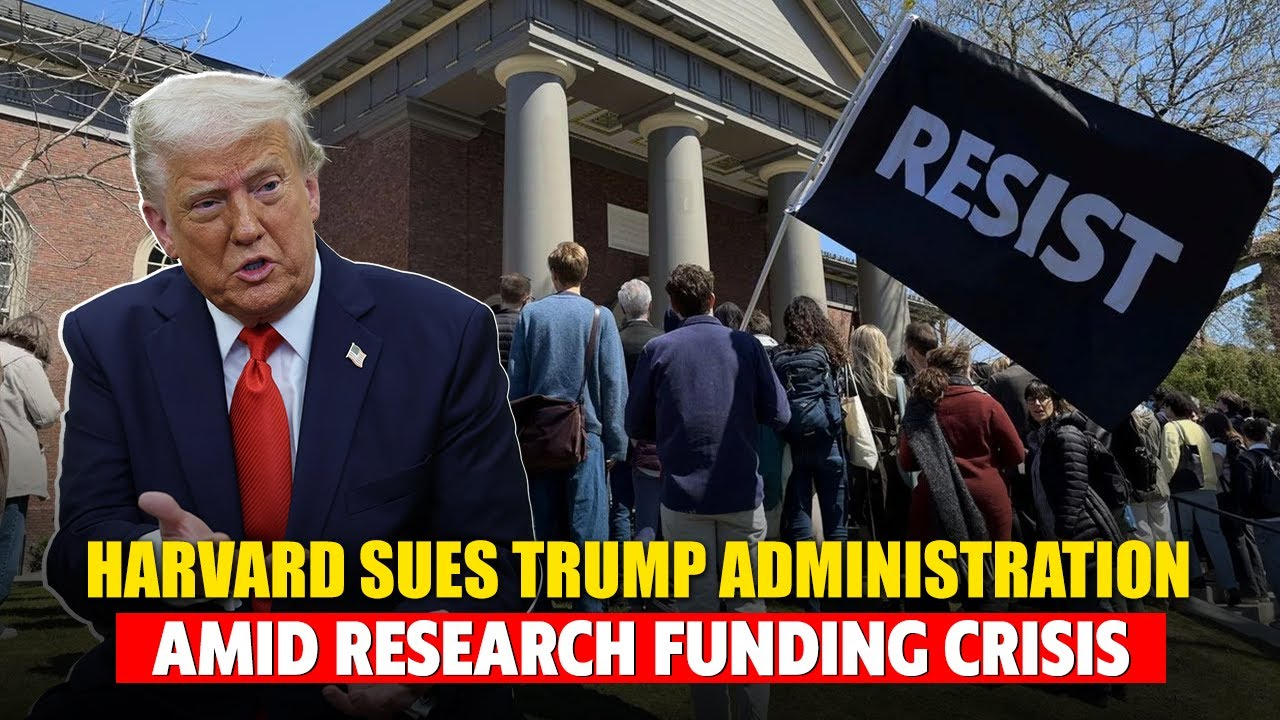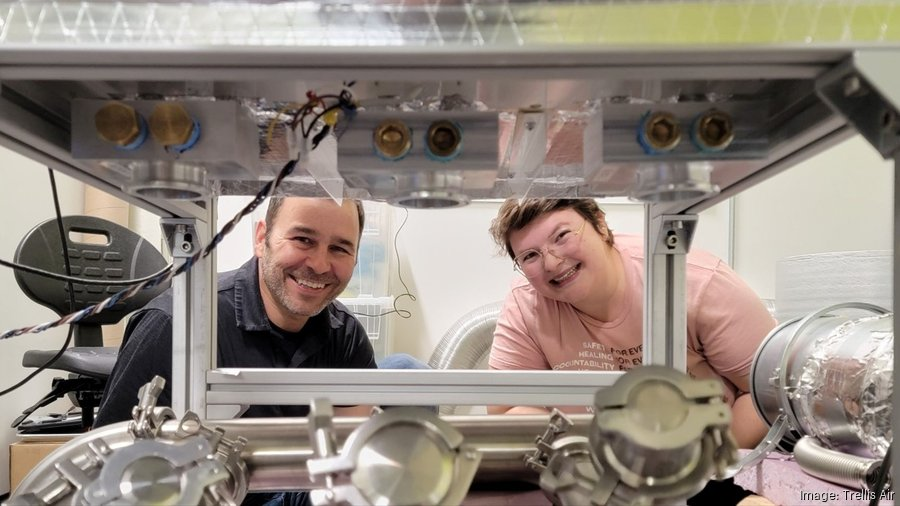The Harvard research funding crisis has cast a shadow over one of the world’s most prestigious academic institutions, shaking its foundations of innovation and discovery. Just recently, in an unprecedented move, the federal government issued a stop-work order, stalling significant projects like those led by Don Ingber at the Wyss Institute for Biologically Inspired Engineering. With over $19 million in multiyear contracts placed on hold, researchers are scrambling to maintain their work while facing immense uncertainty regarding future funding sources. This crisis not only jeopardizes groundbreaking research aimed at addressing pressing global challenges but also raises concerns about how the innovation economy will be impacted in the long term. As Harvard navigates through the complexities of this funding impasse, the consequences will likely ripple through the wider academic landscape, challenging the very essence of American research and development.
The severe disruption in research funding at Harvard University signals a troubling pattern that could redefine how academic institutions operate within the broader framework of the U.S. innovation ecosystem. The abrupt stop-work orders have left many scholars, including those involved in cutting-edge studies in biologically inspired engineering, grappling with the fate of their essential projects. As the political climate shifts, the integrity of academic partnerships, vital for advancing technology and scientific insights, becomes increasingly vulnerable. This crisis not only threatens to derail years of research investment but also raises critical questions about the sustainability of the collaboration between government entities and academic institutions, a relationship that has historically propelled America’s groundbreaking discoveries.
The Harvard Research Funding Crisis: Impact on Innovation
The recent crisis in research funding at Harvard has raised alarm bells across the academic and innovation sectors. Several key projects, particularly those led by Don Ingber at the Wyss Institute, have encountered severe interruptions due to a government-imposed stop-work order. This halt has direct implications for critical research in biologically inspired engineering, which relies heavily on federal funding to explore new frontiers in technology and medicine. As these projects struggle to maintain momentum, concerns grow about their long-term viability and the scale of loss stemming from suspended experiments and halted developments.
At the heart of this crisis lies a deep-rooted issue that affects not just Harvard but the national innovation economy at large. The funding freeze represents a significant withdrawal of support for scientific research, a combination of halted federal contracts estimated in excess of $2.2 billion. The consequences are felt acutely by researchers, students, and postdoctoral fellows, all grappling with uncertain futures as the system designed to foster innovation seems to falter. The loss of talent and intellectual capital primary to groundbreaking developments has sparked debates about the sustainability of innovation in the American economy.
Navigating the Stop-Work Order: Responses from Harvard
In response to the stop-work order, Don Ingber and his team at the Wyss Institute have launched into damage control mode. The immediate concern is not only compliance with the order but also finding ways to reallocate resources to keep critical personnel engaged. Ingber has articulated a commitment to protecting his team, emphasizing the need to avoid layoffs wherever possible. This strategy involves leveraging other funding opportunities and reallocating personnel to existing grants to mitigate the impact of the halt on their ongoing projects.
Moreover, the internal response at Harvard demonstrates a proactive approach in the face of federal opposition. The decision to file a lawsuit against the government highlights the university’s resolve to challenge what they believe to be unconstitutional demands. By taking a stand, Harvard aims to not only restore their funding but also pave the way for a more stable funding environment for future research initiatives. This legal battle is pivotal, as the outcome could define the future landscape of academic funding and its integral role in sustaining American innovation.
Biologically Inspired Engineering: A Core Research Area
Biologically inspired engineering, with its innovative applications to medicine and technology, is becoming a crucial pillar of modern research. Don Ingber’s work at the Wyss Institute exemplifies how this field aims to solve real-world problems through the development of advanced models, like the organ-on-a-chip technology. This approach aligns closely with contemporary challenges, from modeling the effects of radiation on human health to understanding the implications of space travel on bodily functions. Such projects highlight the transformative potential of integrating biology with engineering to create solutions that benefit society at large.
Furthermore, the implications of Ingber’s research transcend immediate applications, addressing long-term issues such as public health and environmental safety. The urgency of understanding radiation damage, especially in light of policy shifts toward increasing the nuclear energy agenda, illustrates the need for funding investment in such research areas. Defending biologically inspired engineering as a priority within the broader framework of American innovation underscores the necessity of federal support to drive breakthroughs that can substantially enhance quality of life.
Harvard’s Innovation Economy Contributions
Harvard University has long served as a bedrock for America’s innovation economy, contributing significantly to technological advancements across a plethora of industries. This role stems from a unique synergy between academia and governmental funding that facilitates groundbreaking research. Ingber’s assertion that academic endeavors are integral to the innovation engine resonates as a clarion call for support amidst the funding crisis. The cutting-edge work emerging from institutions like Harvard is responsible for pivotal developments in fields ranging from healthcare technology to artificial intelligence.
Moreover, the consequences of a weakened innovation economy extend beyond research institutions. As renowned scholars and emerging scientists hesitate to accept positions in the current climate of instability, the potential destabilization of America’s scientific workforce could lead to a regression in established progress. The interconnected nature of research and industry exemplifies why maintaining robust funding channels is essential to foster a fertile environment for innovation that continuously shapes society’s technological landscape.
Long-Term Implications for Researchers and Institutions
The long-term repercussions of the research funding crisis at Harvard could reshape how institutions approach collaboration and funding strategies in the future. As researchers like Don Ingber wrestle with uncertainty, institutions may need to reassess their dependency on federal funding streams and explore alternative avenues to sustain scientific inquiry. This shift may lead to innovative funding models that prioritize research initiatives seen as critical to national interests, addressing both immediate and broader socioeconomic challenges.
Moreover, scholars across the nation are undoubtedly watching the developments at Harvard closely. The potential fallout from the stop-work orders and funding cuts may breed a more cautious approach to research and a reevaluation of how projects are presented to potential sponsors. To attract ongoing and future funding, researchers must now integrate narratives of resilience and adaptability into their work, emphasizing the necessity of continued investment in important research areas, including biologically inspired engineering, to ensure the future of American innovation.
In the Wake of a Government Funding Withdrawal
The recent withdrawal of government funding has not only affected the projects at Harvard but has also raised alarm across the entire academic landscape. For researchers, the stop-work order issued by federal agencies creates an atmosphere rife with uncertainty, leading to questions about job security and the viability of ongoing research efforts. Individuals such as Ingber are spotlighting this precarious situation, emphasizing that the cessation of federal support could have cascading effects, stifling collaborative efforts and delaying essential advancements in various fields.
Research ecosystems thrive on predictability and support; hence, the current state posits a troubling scenario for those embedded within the academic framework. As researchers confront the daunting reality of halted projects, they are also acknowledging the imperative of advocating for sustained federal commitment to scientific exploration. Organ-on-a-chip projects, which promise groundbreaking insights into health and disease, showcase the profound impact of government funding in translating innovative concepts into practical solutions, urging stakeholders to recognize their critical value in shaping the future.
Rethinking Federal Partnerships in Academia
The evolving landscape of federal partnerships in academia necessitates a reconsideration of how collaboration is fostered. In light of recent funding crises, there is a growing sense among researchers that traditional funding mechanisms may be insufficient to support the innovative aspirations of institutions like Harvard. The dynamics showcased in Ingber’s case illustrate the dire need for a responsive strategy that favors sustained investment rather than sporadic, conditional support.
This rethinking process includes fostering deeper collaboration between government entities and research institutions to ensure that critical projects do not fall prey to political shifts or administrative changes. Innovators at Harvard and beyond must advocate for a shared vision with policymakers that clearly outlines the societal benefits of sustained and reliable funding streams. Thus, enhancing the relationship between academia and the government can illuminate the path moving forward, ensuring that the fruit of research grants into beneficial innovations continues to thrive.
Lessons Learned from the Crisis
The ongoing crisis has served as a harsh reminder of the fragility of research funding and its implications for academia’s innovation capabilities. As Harvard grapples with federal funding interruptions, reflections on the lessons learned emerge prominently. Key among these lessons is the realization of the importance of diversifying funding sources to mitigate risks related to governmental changes. Establishing robust collaborations with private sector partners and philanthropic organizations can provide a buffer against federal uncertainties and ensure that valuable research continues to flourish.
Moreover, the crisis unfolds as a pivotal moment for academic leaders to reassess their strategic priorities, balancing cutting-edge research with sustainable practices. Engaging the community in conversations about funding approaches and research priorities is essential to nurturing a collective commitment to preserving the innovation ecosystem. The experiences of institutions like Harvard during this tumultuous period will undoubtedly influence future protocols and strategies for cultivating resilience in research amid unpredictable political landscapes.
The Importance of Protecting Researchers’ Futures
As the funding crisis lingers, protecting the futures of researchers has never been more critical. Don Ingber’s commitment to his team’s well-being is testament to the importance of valuing human capital in these trying times. Academic institutions must take clear and decisive actions to safeguard not only their projects but also their researchers’ careers, acknowledging that their success depends heavily on the continuity of knowledge and talent within the field.
Advocating for researchers extends beyond securing immediate funds; it requires fostering an environment where academic innovators feel empowered to contribute to their fields without fear of abrupt cessation. In this respect, creating mentorship initiatives or ensuring job placement support can help mitigate the psychological and professional impacts of the funding crisis. By taking strategic steps to support their researchers, institutions can build a resilient framework that withstands future uncertainties.
Frequently Asked Questions
What led to the Harvard research funding crisis?
The Harvard research funding crisis was triggered when the Trump administration issued a stop-work order to the University, resulting in a freeze of approximately $2.2 billion in research funding. This order, which particularly affected projects like those led by Don Ingber at the Wyss Institute for Biologically Inspired Engineering, came after Harvard rejected demands for changes in governance, hiring practices, and other policies.
How does the stop-work order impact Harvard research funding?
The stop-work order directly impacted Harvard research funding by halting critical projects with significant government contracts. Researchers at the University, including those at the Wyss Institute, faced uncertainty about job security and funding continuity, which jeopardized ongoing research initiatives vital for advancements in fields such as health and space exploration.
What are the implications of the stop-work order for biologically inspired engineering projects at Harvard?
The implications of the stop-work order for biologically inspired engineering projects at Harvard include the suspension of innovative research such as organ-on-a-chip technologies that model radiation effects on human health. This pause not only risks losing valuable research progress but also affects the careers of many talented researchers and students involved in these projects.
How is Don Ingber addressing the Harvard research funding crisis?
Don Ingber is addressing the Harvard research funding crisis by prioritizing the welfare of his team and seeking alternative funding sources to keep projects alive. He is actively engaging with University administrators, writing op-eds about funding cuts, and emphasizing the importance of academic research for America’s innovation economy to advocate for the restoration of funding.
What is the significance of the projects affected by Harvard’s research funding freeze?
The significance of the projects affected by Harvard’s research funding freeze, particularly those at the Wyss Institute, lies in their potential to advance medical research and technologies that address critical health challenges. For example, the organ-on-a-chip technology aims to model human organ responses to radiation, crucial for future healthcare applications and space exploration.
What are the long-term effects of the Harvard research funding crisis on the innovation economy?
The long-term effects of the Harvard research funding crisis on the innovation economy may include a decline in groundbreaking scientific research and technological development, as the partnership between government and academia that has historically fueled American innovation is being jeopardized. This instability can discourage top talent from entering or remaining in the U.S. scientific community, further stifacing innovation.
What are alternatives being explored amid the Harvard research funding crisis?
Amid the Harvard research funding crisis, alternatives being explored include reallocating personnel to ongoing grants, seeking internal funding to maintain research engagement, and filing lawsuits to restore the funding blocked by the government. Researchers like Don Ingber are also advocating for increased public awareness of the crucial role of academic research in driving innovation.
How are international researchers reacting to the Harvard funding crisis?
International researchers are reacting to the Harvard funding crisis with concern for their job security and future opportunities in the U.S. Some have chosen to withdraw from positions at Harvard due to fears about safety and instability, indicating the crisis may deter talented scientists from seeking roles at American universities.
What role does government funding play in supporting Harvard research?
Government funding plays a crucial role in supporting Harvard research, as it enables the University to conduct vital scientific inquiries, develop new technologies, and advance knowledge in various fields. The recent freeze on $2.2 billion in funding underscores the dependence of academic institutions on governmental support to drive innovation and maintain research activities.
How might the outcome of the Harvard lawsuit affect research funding in the future?
The outcome of the lawsuit filed by Harvard against the government over the funding freeze could set a precedent for future research funding dynamics. A favorable ruling may restore critical funding and reaffirm the autonomy of academic institutions, while an unfavorable outcome could further destabilize funding landscapes for research within Harvard and potentially across other universities.
| Key Points | Details |
|---|---|
| Stop-Work Order Issued | A stop-work order for two organ-on-a-chip projects was received by Don Ingber, indicating immediate uncertainty for researchers and projects. |
| Harvard’s Lawsuit | Harvard filed a lawsuit against the government to restore funding after rejecting demands that altered governance and hiring practices. |
| Funding Crisis | The Trump administration froze $2.2 billion in research funding to Harvard as a result of the conflict. |
| Impact on Research | Research projects are at risk of being significantly disrupted, affecting ongoing experiments and researchers’ work. |
| Concern for Talent | Uncertainty is prompting researchers and prospective hires to seek opportunities elsewhere, fearing instability. |
| Importance of Research | Research from Ingber’s projects is deemed crucial for understanding radiation damage and mitigating risks for space travel. |
| Long-term Effects of Funding Cuts | The cuts represent a broader threat to America’s innovation engine, essential for technological advancement. |
Summary
The Harvard research funding crisis is a significant challenge facing the university’s academic community, stemming from actions taken by the Trump administration that led to the freezing of substantial government grant funding. The conflict between Harvard and the government poses risks not only to ongoing research initiatives but also to talent retention within the university system. Researchers are grappling with uncertainty, making immediate decisions to mitigate disruptions, while the broader implications on America’s innovation engine signal potential long-term consequences for scientific advancement and technology development.









